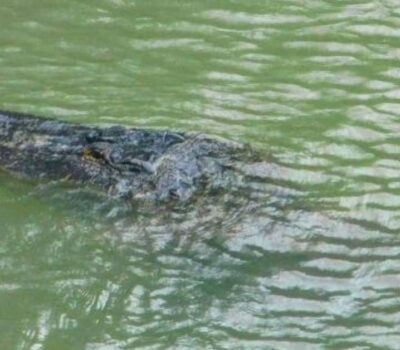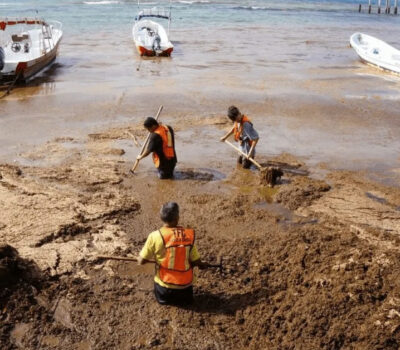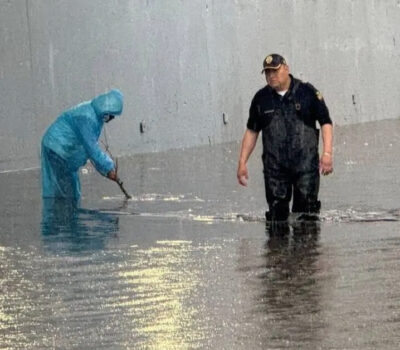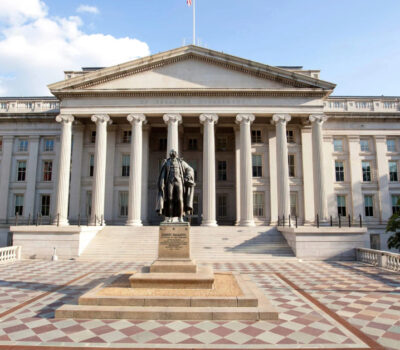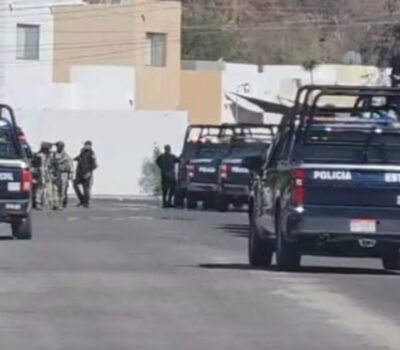“It will not be a short epidemic, it will take 12 weeks at least.” This is the forecast that the Mexican Government is communicating to the public about the timeframe in which citizens should be proactive.
“These are lessons that have been learned from what happened around the world and from what happened in Mexico in 2009,” said the spokesman for the crisis in this country and Undersecretary of Health this morning. Hugo López-Gatell has insisted that anxiety should not permeate political decisions, something that often happens in countries. At the morning press conference, it was also announced that $3.5 million pesos, about $151 million dollars, will be dedicated to medical devices.
Mexico currently reports no community contagion, all cases have been imported from countries such as Spain, Italy, and the United States from travelers. No deaths have yet been registered, but the anguish is evident given that Mexico’s northern neighbor, with whom they share a 3,500-kilometer border, has the infection in a critical phase.
In spite of everything, Mexico does not consider banning flights to its territory or closing borders.
“I insist. Only in medieval times could this make sense and I don’t know what scientific basis it would have. Currently, it does not. Soon there will be so many coronaviruses that it will not depend on the closure of the borders. If we closed, we would do colossal damage to the economy without having a net effect to delay the epidemic. We depend on the entire world to collect supplies, merchandise,” said López-Gatell.
Clearly, the official doesn’t understand that the virus didn’t make it’s way to Europe or the United States from China without human carriers traveling across borders and on airplanes, as a scientific fact. Nor would limiting travel require the limitation of imports into the country.
On the other hand, the undersecretary has assured, on a border as busy as those that separate Mexico from the United States, with millions of people crossing it in both directions, to put filters on the population “would be impossible”. For the moment, he said, airport controls are being carried out on some flights arriving from the most affected countries with a declaration of the history of symptoms, taking the temperature if necessary or a medical review and sampling if the passenger has suspicious symptoms. Those filters, he says, “have existed since the third week of January.” Obviously not on all flights. “Filtering everyone is impossible and useless,” says López-Gatell.
The method of filtering wouldn’t detect the nearly 80% of infected people who have recently been classified as asymptomatic but contagious. The monitoring at ports of entry is mostly phycological reassurance, not a public health issue.
The President of Mexico, Andrés Manuel López Obrador, has announced that this weekend in Oaxaca there will not be a massive meeting with the citizens, as usual, but rather more moderate in an indigenous community, Guelatao de Juárez. Nor will the president’s celebration of the oil expropriation of March 18, 1938, be “massive” with an act in the Pemex tower with little participation.
The actions of the president in recent days had generated controversy because while his government asked for the public to maintain a healthy distance, that people keep a little more than a meter apart in their daily relationships, at work and even at home, López Obrador was out hugging, handshaking, and kissing supporters in very vulnerable communities.
“There will be time to visit other towns, but better not give rise to questions such as that the president does not set an example, or does not take care of himself, which are the ones used by my adversaries, ” he said, taking the matter to the political arena instead of addressing the health concerns of Mexicans.
The Mexican President has long insisted the pandemic was a hoax by the conservative party to undermind his presidency. A position that President Trump took early on in the pandemic but recently has acknowledged the virus isn’t under control and massive measures were taken after weeks of downplaying the seriousness of the pandemic.
The undersecretary of Health in Mexico, however, wanted to mark a space between politics and science.
“Bringing this into the political sphere is not beneficial. It seems that the entire world has entered a phase of confusion and decisions are being made that bear little relation to the reflection of the scientific and technical community. They seem to have succumbed to the socio-political dynamics,” he said.
In recent days, countries around the world are taking emergency measures, and in some cases, there is room for political arguments, as happened yesterday between Mexico and El Salvador by a plane that wanted to land in El Salvador where it was wrongly assumed that there were infected Mexican citizens.
The Mexican Government is convinced that there is still time in its territory for preventive and assistance interventions. While waiting for infections to become local or spread uncontrollably in the harshest phase of the crisis, it has decided not to drastically interfere with the mobility of nationals and foreigners. The pandemic will be long and drawn out for Mexico until the people and power come to grips with the reality that much of the world has been forced to acknowledge.
"It will not be a short epidemic, it will take 12 weeks at least." This is the forecast that the Mexican Government is communicating . . .




